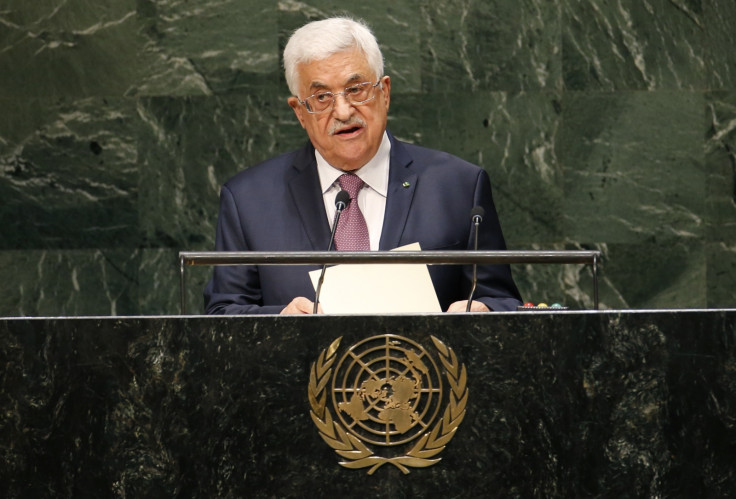UN chief Ban Ki-moon confirms Palestine to join International Criminal Court on 1 April

United Nations Secretary-General Ban Ki-moon has confirmed that the state of Palestine will join the International Criminal Court (ICC) on 1 April, a development which will allow them to pursue war crimes charges against Israel.
The Palestinians, headed by Palestinian Authority President Mahmoud Abbas, last week submitted documents ratifying the Rome Statute in order to formally join the Hague-based court which deals with war crimes.
In a statement posted on the organisation's treaty website, Ki said that "the statute will enter into force for the State of Palestine on April 1, 2015".
The UN chief added that he was the acting "depositary" for the ratification documents.
The ICC has confirmed that Palestinians have formally recognised the court's jurisdiction to investigate alleged war crimes committed during the seven-week summer conflict with Palestinian militants in Gaza last year.
"On 1 January 2015, the Registrar of the International Criminal Court (ICC), Herman von Hebel, received a document... by the Palestinian government declaring Palestine's acceptance of the jurisdiction of the ICC since 13 June 2014," the ICC said in a statement.
The Ramallah-based Al-Haq rights group said that the alleged war crimes committed by Israel in Gaza would be included in the first case that the Palestinians plan to refer to the court.
In reaction to the Palestinian application to the ICC, Israeli Prime Minister Benjamin Netanyahu ordered the withholding of £83m in Palestinian tax revenues that pay the salaries of the Palestinian Authority. The US State Department condemned the action.
"We conveyed to the Israelis that freezing the tax revenues is an action that raises tensions," US State Department spokeswoman Jen Psaki said. "We oppose any actions that raise tensions and we call on both sides to avoid it."
© Copyright IBTimes 2024. All rights reserved.






